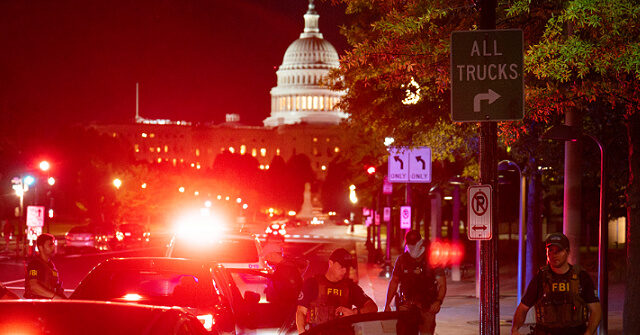Will Troops Stand Down Against Trump's D.C. Guard Orders?

Examining the Current State of the U.S. Military and Civilian Control
The recent op-ed by former Obama administration officials Steven Simon and Jonathan Stevenson has sparked a significant conversation about the role of the U.S. military in domestic affairs and its relationship with civilian authority. They argue that the deployment of National Guard troops under President Donald Trump is indicative of a troubling trend where the military is increasingly serving as an instrument of political power rather than maintaining its traditional role as an apolitical entity. This discourse raises important questions about the implications of military involvement in domestic law enforcement and the erosion of democratic principles.
The Deployment of National Guard Troops: A Misuse of Military Power?
Simon and Stevenson contend that the deployment of 800 National Guard troops to Washington, D.C., was executed under the pretext of an “illusive crime wave,” suggesting that this action is not a legitimate response to public safety concerns but rather an example of the militarization of domestic law enforcement. They express concern that President Trump is pulling the military into the realm of local policing, which could set a dangerous precedent for future administrations. This trend draws parallels to historical instances where the military was misused for political purposes, raising alarms about the potential for authoritarianism.
Historical Context: Lessons from the Past
The authors reference historical events, such as the internment of Japanese Americans during World War II, to illustrate the dangers of military involvement in domestic affairs. This historical analogy serves as a cautionary tale that highlights how military power can be wielded unjustly against civilians. By invoking these precedents, Simon and Stevenson emphasize the importance of maintaining a clear boundary between military duties and civilian law enforcement to prevent the repetition of past mistakes.
Changing Dynamics of Civil-Military Relations
Simon and Stevenson articulate their belief that recent changes within the Pentagon have altered the military’s traditional role as a guardian of the Constitution. They argue that the prioritization of loyalty over legality in military promotions has compromised the integrity of military leadership. This shift poses a significant threat to the principle of democratic civilian control, which has historically acted as a bulwark against authoritarianism.
Concerns Over Military Professionalism
The op-ed argues that the military’s apolitical professionalism is being undermined by the current administration’s approach to personnel decisions. The authors claim that Trump’s administration has emphasized loyalty to the political agenda over adherence to constitutional principles. This raises critical questions about the future of military professionalism and the capacity of military officers to act independently and uphold their ethical obligations.
Implications for Civilian Oversight
Simon and Stevenson warn that the military’s role in domestic law enforcement blurs the lines of civilian oversight and control. They argue that the current trajectory could lead to a situation where military personnel are more inclined to follow orders without question, thereby eroding the fundamental principle of civilian authority over the military. This trend not only undermines the Constitution but also poses risks to civil liberties and democratic governance.
The Role of Judicial Intervention
In conclusion, the authors express hope that judicial intervention might provide a necessary check on the executive branch’s power. They point to the potential role of the Supreme Court in enforcing constitutional discipline within the armed forces, highlighting the judiciary’s crucial role in maintaining the balance of power among branches of government. However, they also acknowledge the challenges posed by a court that has shown reluctance to curb presidential authority.
Key Takeaways from the Op-Ed
The arguments put forth by Simon and Stevenson underscore several critical points regarding the current state of the U.S. military and its relationship with civilian governance:
- The deployment of National Guard troops for domestic law enforcement is viewed as a misuse of military power.
- Historical precedents illustrate the dangers of military involvement in civilian affairs.
- Recent changes within the military have compromised its apolitical professionalism and loyalty to constitutional principles.
- The blurring of lines between military and civilian authority poses risks to democracy and civil liberties.
- Judicial intervention may be necessary to restore checks and balances within the U.S. government.
Frequently Asked Questions
What is the main concern regarding the National Guard's deployment to Washington?
The primary concern is that the deployment of National Guard troops for domestic law enforcement is indicative of the military being used as a political tool rather than maintaining its traditional role as an apolitical entity. This raises alarms about the potential for authoritarianism and the erosion of democratic principles.
How does historical context inform the current discussion about civil-military relations?
Historical events, such as the internment of Japanese Americans during World War II, serve as cautionary tales about the dangers of military involvement in domestic affairs. They highlight how military power can be misused against civilians and emphasize the importance of maintaining a clear boundary between military duties and civilian law enforcement.
Why is military professionalism important in the context of civilian control?
Military professionalism is vital to ensure that military officers act independently and uphold their ethical obligations. It serves as a bulwark against authoritarianism by reinforcing the principle of democratic civilian control, which prevents the military from becoming a tool of political power.
In light of the ongoing discussions about the role of the military in domestic affairs, one must consider the long-term implications of these developments for the future of American democracy. As the lines between civilian law enforcement and military operations continue to blur, how do we ensure that the military remains a defender of constitutional principles rather than a participant in political power struggles? #Military #CivilianControl #Democracy
Published: 2025-08-15 04:54:55 | Category: Trump GNEWS Search



